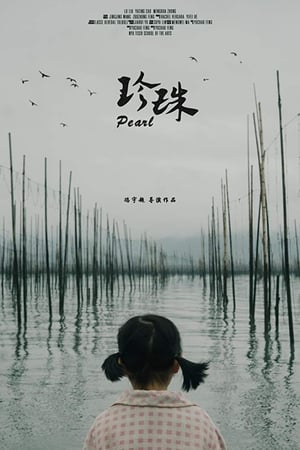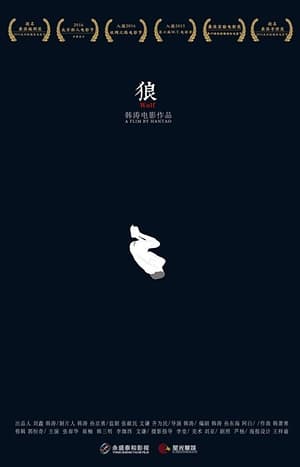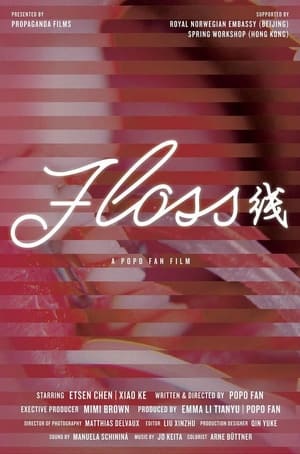
New Beijing, New Marriage(2009)
This short film shows a quest of two homosexual couples for understanding from the people in their surroundings, through meetings and exchanges on a square in the heart of Beijing.
Movie: New Beijing, New Marriage

新前门大街
HomePage
Overview
This short film shows a quest of two homosexual couples for understanding from the people in their surroundings, through meetings and exchanges on a square in the heart of Beijing.
Release Date
2009-10-07
Average
10
Rating:
5.0 startsTagline
Genres
Languages:
Recommendations Movies
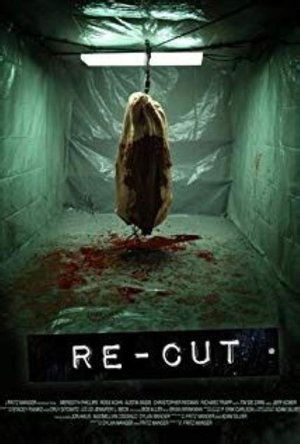 6.6
6.6Re-Cut(en)
When twin girls are found dead in their family’s barn, reality star turned TV-reporter Meredith Phillips and her de-facto camera crew are dispatched to rural Wisconsin to investigate the gruesome deaths. In their relentless drive to break the story, the reporters become entangled in a deadly mystery and uncover the small town’s shocking secret. Edited together from the crew’s multiple cameras, the film documents their struggle to survive the most terrifying night of their lives and becomes the only evidence of a crime too horrific to imagine.
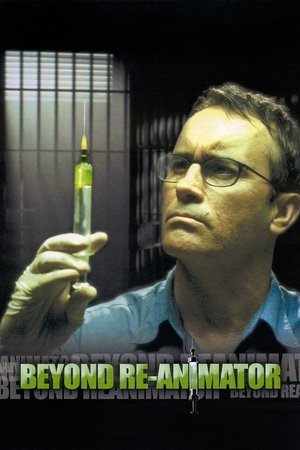 6.0
6.0Beyond Re-Animator(en)
Once again tampering with mother nature to disastrous results, Dr. Herbert West continues his research while serving time in a maximum security prison for his previous exploits. West's limited prison-cell experiments are suddenly interrupted by the arrival of a new prison doctor and the brother of the girl who suffered from West's experiments 13 years earlier.
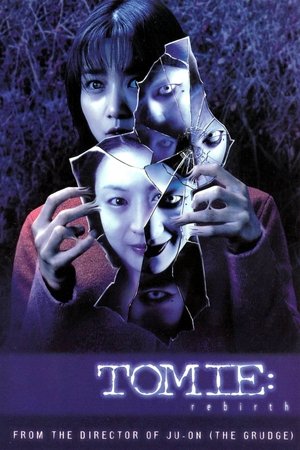 7.2
7.2Tomie: Rebirth(ja)
Young art student Hideo paints an unnerving portrait of Tomie, who whispers that she loves him. Inexplicably, he reacts by stabbing her to death with a painting trowel. Two friends, Takumi and Shunichi, arrive on the scene and help him dispose of the body. To cheer him up, the boys take the unwitting murderer to the nearest bar for a party... but a mysterious girl named Tomie shows up, bearing a few odd physical resemblances to the dead girl in the ground.
 6.8
6.8Oedipus Rex(it)
In pre-war Italy, a young couple have a baby boy. The father, however, is jealous of his son - and the scene moves to antiquity, where the baby is taken into the desert to be killed. He is rescued, given the name Edipo (Oedipus), and brought up by the King and Queen of Corinth as their son. One day an oracle informs Edipo that he is destined to kill his father and marry his mother. Horrified, he flees Corinth and his supposed parents - only to get into a fight and kill an older man on the road…
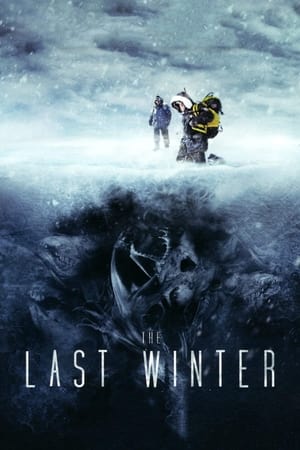 5.3
5.3The Last Winter(en)
In the Arctic region of Northern Alaska, an oil company's advance team struggles to establish a drilling base that will forever alter the pristine land. After one team member is found dead, a disorientation slowly claims the sanity of the others as each of them succumbs to a mysterious fear.
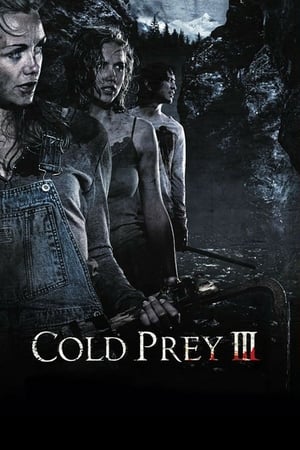 5.8
5.8Cold Prey III(no)
In 1988, a group of teenagers go to visit an abandoned hotel, only to find themselves hunted by a psychotic killer through the Norwegian woods.
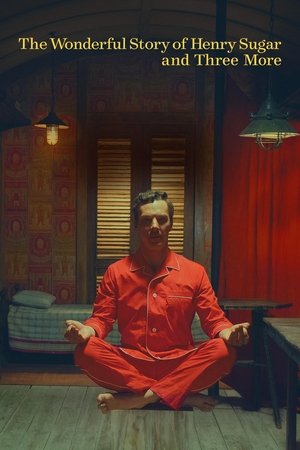 7.5
7.5The Wonderful Story of Henry Sugar and Three More(en)
Four tales unfold in Wes Anderson's anthology of short films adapted from Roald Dahl's beloved stories, "The Wonderful Story of Henry Sugar", "The Swan", "The Rat Catcher", and "Poison".
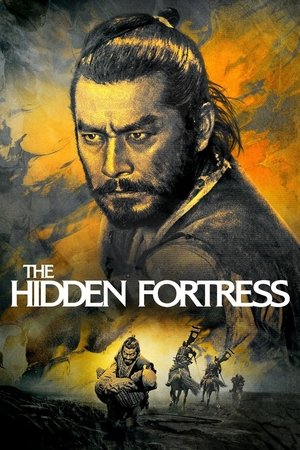 8.0
8.0The Hidden Fortress(ja)
In feudal Japan, during a bloody war between clans, two cowardly and greedy peasants, soldiers of a defeated army, stumble upon a mysterious man who guides them to a fortress hidden in the mountains.
 6.3
6.3Robot Apocalypse(en)
An expert hacker is targeted by a sentient AI after she realizes the threat it poses, and she must try to stay off its radar long enough to stop it.
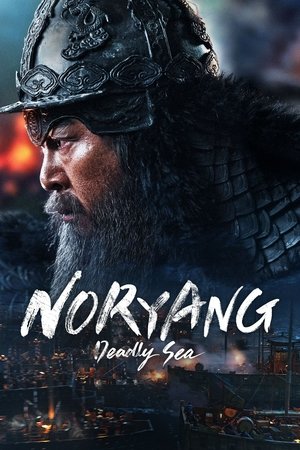 6.3
6.3Noryang: Deadly Sea(ko)
The Imjin War reaches its seventh year in December of 1598. Admiral Yi Sun-shin learns that the Wa invaders in Joseon are preparing for a swift withdrawal following the deathbed orders of their leader Toyotomi Hideyoshi. Determined to destroy the enemy once and for all, Admiral Yi leads an allied fleet of Joseon and Ming ships to mount a blockade and annihilate the Wa army. However, once Ming commander Chen Lin is bribed into lifting the blockade, Wa lord Shimazu Yoshihiro and his Satsuma army sail to the Wa army's rescue at Noryang Strait.
 5.7
5.7way(en)
San Francisco filmmaker Konrad Steiner took 12 years to complete a montage cycle set to the late Leslie Scalapino’s most celebrated poem, way—a sprawling book-length odyssey of shardlike urban impressions, fraught with obliquely felt social and sexual tensions. Six stylistically distinctive films for each section of way, using sources ranging from Kodachrome footage of sun-kissed S.F. street scenes to internet clips of the Iraq war to a fragmented Fred Astaire dance number.
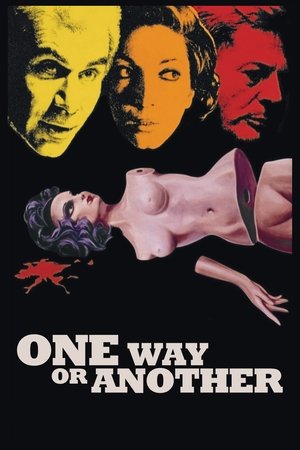 7.6
7.6One Way or Another(it)
Set during a retreat of Christian Democrat politicians who practice spiritual exercises together, it is an allegory of corrupted power. Disturbing, claustrophobic settings are the background to a series of mysterious crimes.
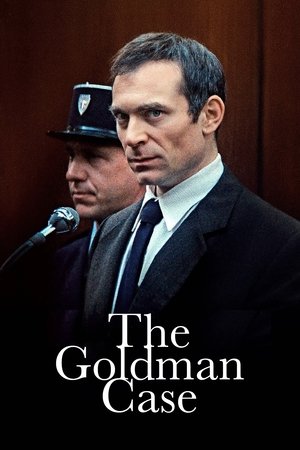 7.0
7.0The Goldman Case(fr)
A second trial begins in November 1975 against French left-wing revolutionary Pierre Goldman, accused of several armed robberies and the death of two chemists.
 6.0
6.0Re-Kill(en)
Five years after a zombie outbreak, the men and women of R-Division hunt down and destroy the undead. When they see signs of a second outbreak, they fear humanity may not survive.
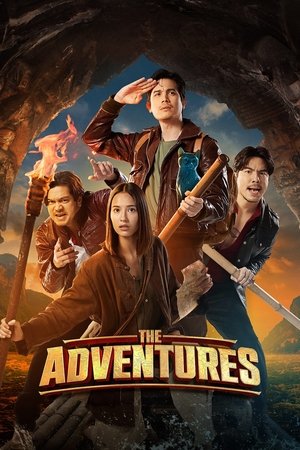 5.9
5.9The Adventures(th)
Joy, a secretary at a large multinational company, has an online shopping problem, likes to read adventure novels and watch travel and adventure shows. She daydreams about living a life of adventure.
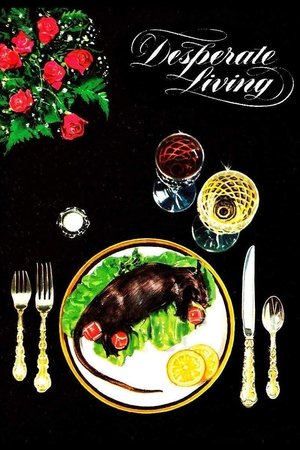 6.5
6.5Desperate Living(en)
After killing her husband, Peggy Gravel and her murderous maid Grizelda wind up in the crazy town of Mortville, where Queen Carlotta presides over a sleazy collection of misfits.
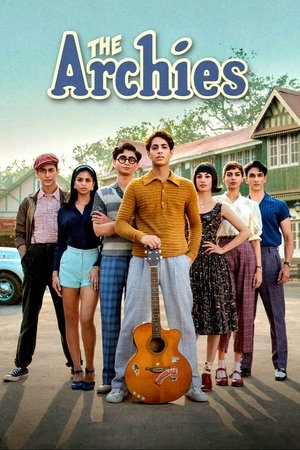 6.0
6.0The Archies(hi)
Set in 1960s India, Archie and the gang navigate romance, friendship and the future of Riverdale as developers threaten to destroy a beloved park.
 6.2
6.2Baron Blood(it)
A young man, Peter, returns to Austria in search of his heritage. There he visits the castle of an ancestor, a sadistic Baron who was cursed to a violent death by a witch whom the Baron had burned at the stake. Peter reads aloud the incantation that causes Baron Blood to return and continue his murderous tortures.
 6.6
6.6The Rat Catcher(en)
In an English village, a reporter and a mechanic listen to a ratcatcher explain his clever plan to outwit his prey.
Similar Movies
 7.0
7.0We Are Here(zh)
What happens when 300 lesbians from around the world attend the largest United Nations conference? How did two busloads of lesbians headed to an underground nightclub help spark the birth of a lala (LBT) movement in China? At the 1995 Fourth World Conference on Women in Beijing, the first ever lesbian tent at an UN NGO Forum was created. Emerging from hidden shadows of shame and invisibility, Chinese lalas began a hard-fought path of deliverance from themselves, from family, and from an apprehensive environment. In doing so, they sought empowerment and change as they explored concepts and issues from self-affirmation to rights consciousness. The film powerfully moves forward to the present day and shows the drastic change in today’s young feminist lalas – their challenging of sexism and homophobia with daring public street actions on subways – a parallel action to their forerunners in 1995, with much vigor and defiance 20 years later.
 3.0
3.0Pathway(zh)
Xu Xin’s film “Dao Lu” (China 2012) offers an exclusive “in camera” encounter with Zheng Yan, an 83 year-old veteran of the Chinese Red Army, who calmly relates how he has navigated his country’s turbulent history over three-quarters of a century.Born to a wealthy family in a foreign concession, Yan joined the Chinese Communist Party (CCP) in 1941 because he sincerely believed in the socialist project, and in its immediate capacity to free China from the Japanese yoke and eradicate deep-rooted corruption.
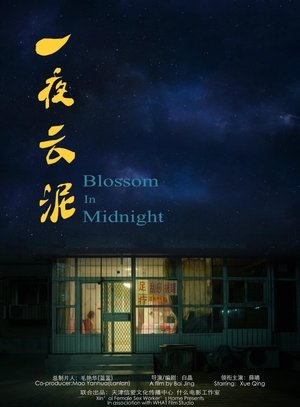 10.0
10.0Blossom in Midnight(zh)
The film is about a woman from a rural area and works in a small restaurant as a cleaner with very low pay. As she has to support her family (mother and daughter), she has no money for herself for better makeup or dress up. She has low esteem. She later was fired by the boss. Because of no money and no home, she goes to the massage parlor and works there a sex worker. It happens that the first customer is the chef of previous restaurant. She has admired him for a while. In this first sex exchange, she is well satisfied both emotionally as well as economically. She starts sex work this way and becomes more confident.
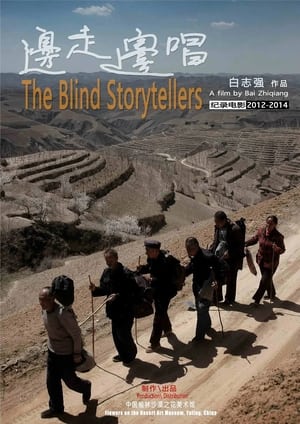 9.0
9.0The Blind Storytellers(zh)
Li Shouwang is the leader of a blind storytellers team, learned storytelling at the age of 19. His childernare living hard in other cities. Li's money amost goes to his children's pocket every year. But with urbanisation, the storytellers have lost almost all their audience. As the conflict between the storytelling team and the village team intensified, his son, who was far away from home, became the only spiritual sustains... When he was excited that his son would be taking his family home for Chinese New Year, what's await is a sigh.
 7.6
7.6Twenty Two(zh)
Follow the lives of the elderly survivors who were forced into sex slavery as “Comfort Women” by the Japanese during World War II. At the time of filming, only 22 of these women were still alive to tell their story. Through their own personal histories and perspectives, they tell a tale that should never be forgotten to generations unaware of the brutalization that occurred.
 6.6
6.6The Iron Ministry(zh)
Filmed over three years on China’s railways, The Iron Ministry traces the vast interiors of a country on the move: flesh and metal, clangs and squeals, light and dark, and language and gesture. Scores of rail journeys come together into one, capturing the thrills and anxieties of social and technological transformation. The Iron Ministry immerses audiences in fleeting relationships and uneasy encounters between humans and machines on what will soon be the world’s largest railway network.
 6.2
6.2Doctor Ma's Country Clinic(zh)
"Huangyangchuan, Gansu province, China. It's an arid mountain area with poor roads. Ma Bingcheng is well-respected local doctor, so many patients (most of them farmers) come to see him every day. In his small clinic, people chat with each other about their lives, local conditions, or the people they know. The clinic seems to open up like a microcosm, the information and experiences of different people intertwine, revealing the conditions of typical Chinese farmers, and the typical fates of both young and old--"
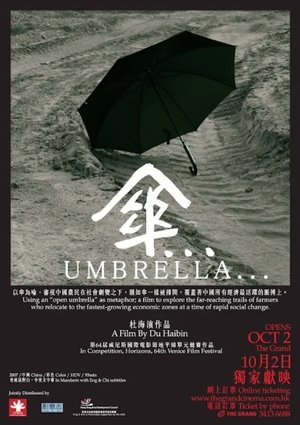 6.3
6.3Umbrella(zh)
Workers, peasants, soldiers, students and merchants were five groups of Chinese society in the 1950s, after the so-called elimination of the exploited class. Borrowing this concept, the umbrella is taken as the clue to rediscover changes in various social classes after the economic reform, and to analyze the social problems in China. Workers making umbrellas, merchants selling umbrellas, students looking for jobs in the rain. Umbrella is used as a metaphor that can be seen everywhere. As the raindrop, what we see is sometimes clear, sometimes untraceable.
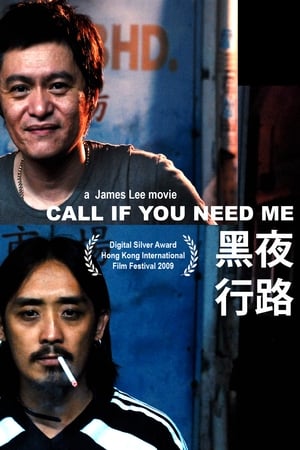 10.0
10.0Call If You Need Me(zh)
Gentle, easy-going Or Kia moves from the countryside to Kuala Lumpur to work for his cousin and best friend Ah Soon, a mid-level gangster and enforcer. While Or Kia works hard to put a sister through school, Ah Soon cares for an unstable girlfriend prone to mysterious disappearances. As they both sink deeper into a nocturnal world of debts, drugs, and betrayal, Or Kia's loyalties are strained when Ah Soon falls out of favor with the bosses and tries to escape the business.
 0.0
0.0China. The Arts – The People(de)
China marks the beginning of the extensive Asian theme in Ottinger’s filmography and is her first travelogue. Her observant eye is interested in anything from Sichuan opera and the Beijing Film Studio to the production of candy and sounds of bicycle bells.
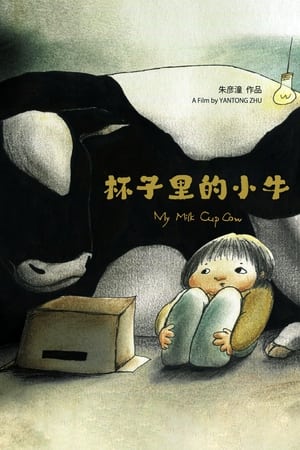 6.5
6.5My Milk Cup Cow(zh)
The father tells his daughter Nunu a lie that there is a cow in her milk cup. She believes it and drinks up milk, but there isn't any cow. Her father tells her a variety of lies, which Nunu finds increasingly difficult to believe.
 6.5
6.5Mama Rainbow(zh)
For Chinese parents, finding out that their kid is gay usually presents a major tragedy, with the big majority utterly unable to accept the homosexuality of their son or daughter. However, during recent years a fresh rainbow wind has been blowing over the Chinese mainland: a pioneer generation of Chinese parents has been stepping up and speaking out on their love for their gay kids. This documentary features 6 mothers from all over China, who talk openly and freely about their experiences with their homosexual children. With their love, they are giving a whole new definition to Chinese-style family bonds.
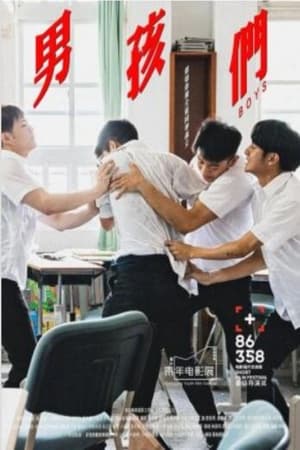 5.0
5.0Boys(zh)
Due to his history of theft in the past, Lin Kuan is falsely accused of stealing from his high school classmate. To prove his innocence, Lin enlists his friend Xiao Bing to make a plan that will clear his name. However, heir seemingly perfect plan takes a turn that pushes Lin to a dangerous edge.
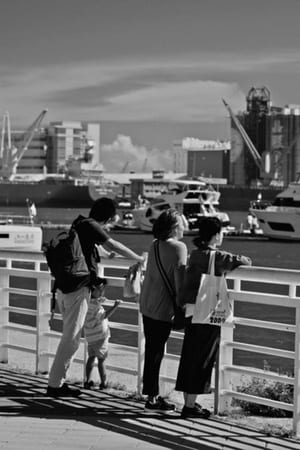 5.0
5.0I Have Nothing to Say(zh)
The Chinese police visit head-teacher Chen at home. Her daughter, a dissident filmmaker living in Hong Kong, plans yet another critical film about China's colonization of the small autonomous territory. The authorities demand that Chen travel to her daughter to stop the film project. What they do not take into account is that Chen and her daughter lost contact long ago.
 9.0
9.0Demolition(zh)
"If the old doesn't go, the new never comes" recites a teenager hanging out near a demolition site in the center of Chengdu, the Sichuan capital in western China. In Demolition, filmmaker J.P. Sniadecki deconstructs the transforming cityscape by befriending the migrant laborers on the site and documenting the honest, often unobserved, human interactions, yielding a wonderfully patient and revealing portrait of work and life in the shadow of progress and economic development.
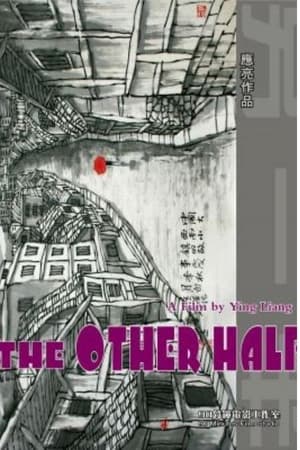 5.8
5.8The Other Half(zh)
Working as a secretary for a legal office, Xiaofen records clients detailing the sordid aspects of their lives: divorce cases, medical malpractice suits, financial corruption and old-fashioned personal revenge. Xiaofen starts to question her own relationship with her boyfriend (Deng Gang), fresh out of prison and looking to get into trouble again with his gambling habit. While Xiaofen deals with the overwhelming social malaise surrounding her, rumors spread of a disaster at the local chemical plant, threatening to poison the entire city.

